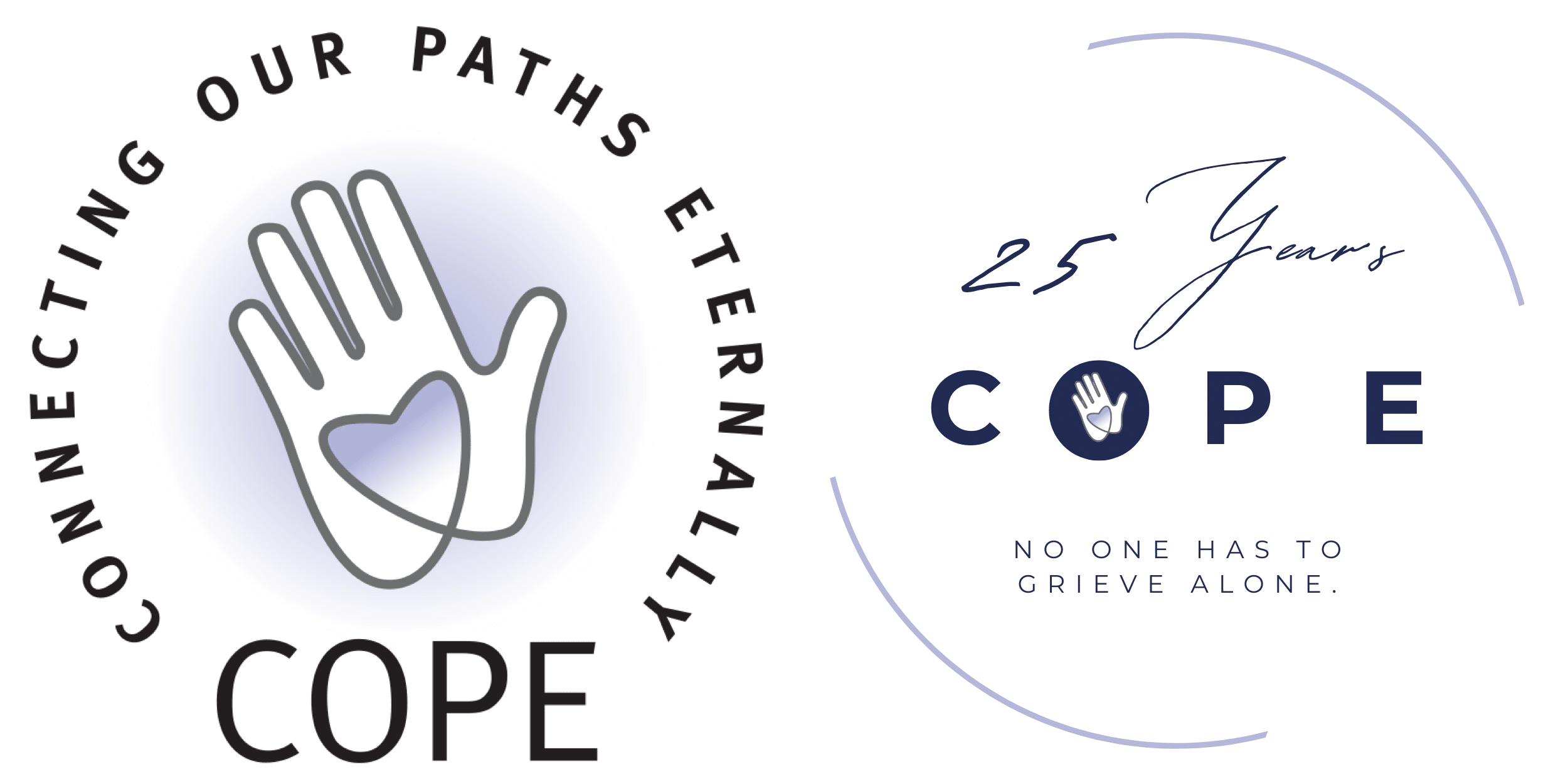In my professional education, clinical training, and personal practice of yoga, meditation or even my childbirth experiences, I have learned and practiced a number of ideas designed to help encourage, accept, and heal your thoughts and by extension your feelings.
These concepts go by different names – positive self-talk, mantra, prayer, affirmations. They are all unique, rooted in different belief systems and cultural traditions and by no means are meant to be considered interchangeable, but they have similar attributes that can provide an important layer of support during challenging times should they align with your beliefs and practice.
Often when working with grief, we focus on the feelings we are having and what we can do to help ourselves feel better – reach out to a support system, go to therapy, practice good self-care, spend time in nature, or use journaling or meditation or music. Sometimes though, the work needs to be done internally with one’s thoughts.
After a loss, your thoughts might be perseverating on the What Ifs?, fixating on questions you can’t answer, or replaying the death or how you found out. Self-talk might help you distract yourself from these ruminations or even argue their validity. You might be anxious thinking about how to get through a difficult event or day and a prayer or mantra in quiet solitude beforehand can provide that centering and strength. You could be giving yourself a hard time about not being “over” your grief or not doing as “well as you should be” and an affirmation can provide the kindness and self-compassion you need.
Positive self-talk is not about only looking on the bright side or labeling challenging thoughts as “bad.” Pushing them down or ignoring them does not allow you to process them.Negative or difficult thoughts should still be expected, accepted, and allowed without judgment. Self-talk is rather about learning to tune into the positive, self-affirming thoughts that can offer that strength and support from within.
Affirmations or mantras are deeply individual and are most meaningful when rooted in their appropriate context, but ones that I have used, learned, or taught in the past are:
This too shall pass.
Today I am enough.
I can do hard things.
I did the best I could with the information I had at the time.
You are here with me.
Today I am grateful for…
Today is a hard day and I will be gentle with myself.
I am allowed to feel this way and I am allowed to not want to feel this way.
There are so many versions of positive self-talk that can be used as a daily exercise or in very specific circumstances. Consider exploring one or more of these practices as part of supporting you in your grief journey.

